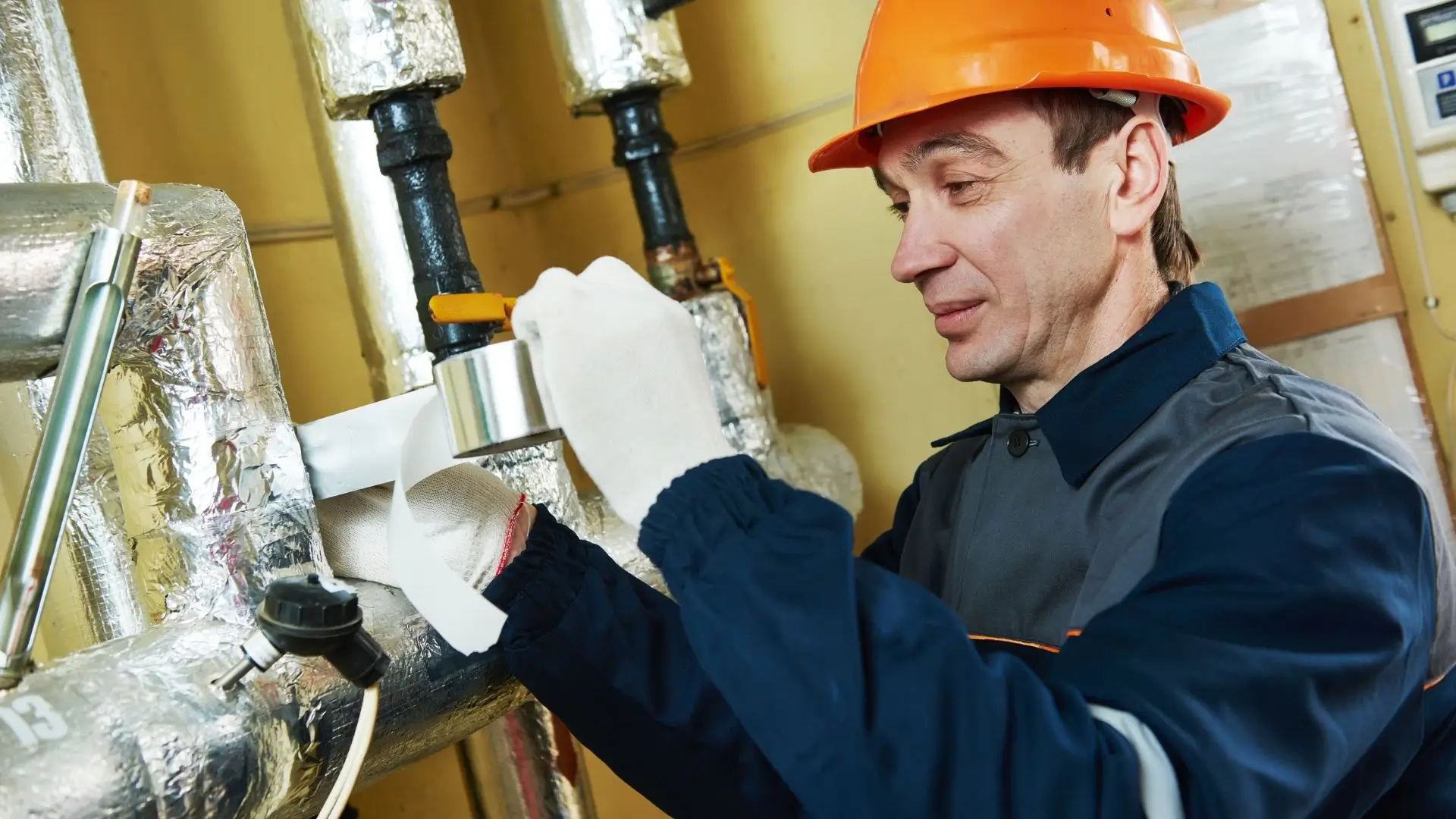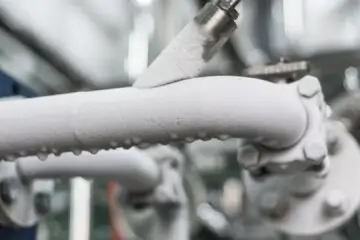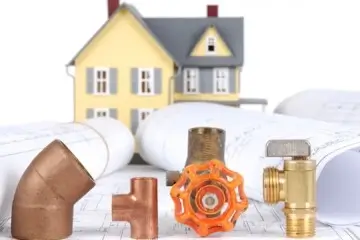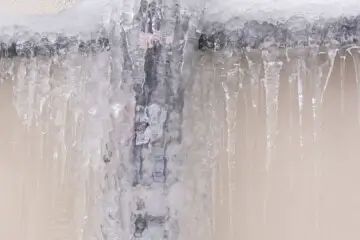Proper insulation and preventive measures are crucial to protect your pipes when heat isn’t available. Ensure your pipes are safeguarded by reaching out to our licensed plumber in Mississauga for expert assistance. Key actions include insulation, leaving cabinet doors open, using heating tape, and maintaining a warm home. Insulate any exposed pipes and let faucets drip during cold spells to reduce the risk of costly damage and repairs.
Contact CAN Plumbing and Drainage for your Pipe Needs
When it comes to safeguarding your pipes from freezing temperatures, reaching out to CAN Plumbing and Drainage in Mississauga is the first step towards peace of mind. Insulating your pipes is crucial to prevent freezing, especially in areas without heat where the risk of frozen pipes and water damage is high. By contacting a licensed plumber like CAN Plumbing and Drainage in Mississauga, you can trust that your pipes are in expert hands. Their professional services can help you avoid the costly consequences of frozen pipes and water damage. Don’t hesitate to call a licensed plumber for assistance in insulating your pipes and protecting your home from potential disasters. Contact us today!

CAN Plumbing and Drainage Services Related to Pipes
At CAN Plumbing and Drainage in Mississauga, we focus on a variety of services concerning pipes. Whether you require new pipe installations, replacements, or encounter issues with frozen or clogged pipes, we possess the expertise to support you. Our team is committed to delivering professional and effective solutions to ensure the smooth operation of your plumbing system.
New Pipe Installations
Installing new pipes necessitates meticulous planning and precise execution to ensure optimal functionality and durability. To prevent pipes from freezing in new installations, adequate insulation is essential. By wrapping pipes, particularly water supply lines, with high-quality insulation, you can safeguard them from freezing during cold spells. Additionally, it is crucial to inspect all other faucets connected to the system when installing new pipes to avoid any additional frozen pipes. Proper insulation not only protects the pipes but also ensures uninterrupted water flow, preventing costly damages. By incorporating insulation during new pipe installations and checking all faucets for potential freezing risks, you can maintain a dependable and efficient plumbing system even in the harshest weather conditions.

New Pipe Replacements
When faced with the need for new pipe replacements, our team at CAN Plumbing and Drainage Services in Mississauga ensures smooth and effective installations for optimal functionality. In areas of your home that are not heated, it is crucial to replace old, vulnerable pipes with new ones to prevent freezing. Our experts suggest adding insulation to these new pipe replacements to provide an additional layer of protection. By upgrading the water pipes in these areas, especially near faucets in your home, you can significantly reduce the risk of your pipes freezing during cold weather. Rely on our professional team to accurately assess your needs and install new pipe replacements efficiently, maintaining the top condition of your plumbing system.
Frozen and Clogged Pipes
In order to tackle frozen and clogged pipe issues, our team at CAN Plumbing and Drainage Services in Mississauga utilizes specialized techniques to restore proper water flow and prevent potential damage. During cold spells, it is crucial to allow your faucet to drip to prevent pipes from freezing without heat. This continuous flow of water helps in preventing pipe freezing. Additionally, applying heat tape to vulnerable pipes can offer extra protection by maintaining a consistent temperature. By ensuring a steady drip and using heat tape, you can protect your pipes from freezing and avoid expensive repairs. Remember, running water is key in preventing frozen and clogged pipes, especially in low temperatures without heating.

Open Cabinet Doors
Optimize warmth circulation by keeping cabinet doors open during cold weather to prevent pipes from freezing. Allowing warm air to circulate around pipes in unheated areas where pipes are located is vital in preventing water from freezing inside them. By opening cabinet doors, you create a flow of warm air that helps maintain a higher temperature around the pipes, reducing the risk of them freezing. This simple technique can be especially effective in areas of the home that tend to get colder, such as under sinks or in basements. Remember, even a small amount of heat can make a big difference in preventing costly damage caused by frozen pipes.
Use Heating Tape or Cables
Utilizing heating tape or cables is a practical way to protect pipes from freezing in areas where heat circulation may be limited, such as under sinks or in basements. These heating solutions are designed to deliver a controlled amount of warmth to the pipes, preventing them from freezing. It is essential to carefully follow the manufacturer’s instructions when installing heating tape or cables to ensure safety and proper function. Combining these heating solutions with insulation can enhance their effectiveness. Additionally, sealing any gaps or cracks in the walls or floors where the pipes are located is crucial to prevent cold air from entering. In case pipes do freeze, heating tape or cables can also help safely thaw them to prevent damage.

Keep the Home Warm
Maintaining a warm temperature in the home is crucial to prevent pipes from freezing during cold weather. To achieve this, keep the thermostat set to at least 55 degrees Fahrenheit. Additionally, letting the cold water drip from faucets can help prevent freezing. Allowing warm air to circulate by keeping interior doors open can also aid in maintaining a comfortable temperature throughout the house. Seal any gaps or cracks around windows and doors to prevent cold drafts. Proper insulation will help maintain higher temperatures indoors. If the situation gets critical, consider turning off the main water supply and draining the pipes. Running water through the pipes periodically can also prevent freezing by keeping the water moving.
Insulate Exposed Pipes
Insulating exposed pipes is crucial to prevent freezing and potential bursting in the absence of heat. When pipes are left exposed to cold weather without a heat source, they become vulnerable to freezing, which can lead to costly damages and disruptions in the water supply. The American Red Cross recommends using pipe sleeves or heat tape to insulate exposed pipes and provide an extra layer of protection. Proper insulation minimizes heat loss and reduces the risk of freezing, safeguarding your plumbing system. This simple yet effective measure can help prevent the inconvenience of dealing with burst pipes when a heater is unavailable.
Allow Faucets to Drip
Insulating exposed pipes protects them from freezing, and another effective method to prevent freezing without heat is allowing faucets to drip. When temperatures drop, turning on a faucet served by exposed pipes to let cold water drip can prevent the pipes from freezing. The flowing water helps prevent ice from forming by keeping the water in the pipes moving. Additionally, this practice allows warm air to circulate around the pipes, further reducing the risk of freezing. By leaving the heat on in your home and allowing a faucet to drip, you create a steady flow of water that can help melt any ice that may have started to form in the pipe, safeguarding your plumbing system from potential damage.
Frequently Asked Questions About Pipes Near Me
How Can I Tell if My Pipes Are at Risk of Freezing?
To identify the risk of freezing pipes, you can check for exposed pipes in unheated areas, feel for cold spots near pipes, and keep an eye on weather forecasts. Prevention is key: insulate pipes, maintain a steady drip, and open cabinet doors to allow warmth.
Are There Any Specific Types of Heating Tape or Cables That Are Recommended for Preventing Frozen Pipes?
Specific types of heating tape or cables are recommended for preventing frozen pipes. Choosing products designed for this purpose, such as self-regulating heating cables, can effectively safeguard your pipes in cold weather.
What Should I Do if My Pipes Have Already Frozen?
If your pipes have already frozen, immediately turn off the water supply to prevent further damage. Thaw the pipes gently using a hairdryer or warm towels. Avoid using open flames. It is recommended to contact a professional plumber to assess and repair any potential issues.
Can I Prevent My Outdoor Pipes From Freezing as Well?
Yes, outdoor pipes can be prevented from freezing by insulating them, draining outdoor faucets, and using heat tape as effective methods. It is also important to regularly check for leaks or cracks and ensure proper drainage to help prevent freezing.
Is It Necessary to Keep All Faucets Dripping or Just Certain Ones?
It is advisable to keep all faucets dripping during freezing conditions to prevent pipes from freezing. This simple measure helps maintain water flow, reducing the risk of blockages and potential bursts. In addition to dripping faucets, proper insulation and regular checks are essential for protecting your pipes.
Please rate our website
Let us improve this post!
Tell us how we can improve this post?


